Why Solar Hot Water Is a Game Changer for Homeowners: Sustainable Savings Uncovered
Transitioning to solar hot water is a strategic move that can shrink energy bills and boost home sustainability. “Why solar hot water is a game changer for homeowners?” you may ask. It’s about more than just savings; it’s a commitment to an eco-friendly lifestyle and smart home investment. In this article, we’ll break down the financial perks, environmental benefits, and practical aspects, showing you exactly how a solar hot water system can revolutionize your domestic life.
Key Takeaways
-
Solar hot water systems are efficient and eco-friendly, using sunlight to heat water and can reduce household hot water costs by at least 50%, with financial incentives and rebates available to offset installation costs.
-
Maintenance is key to longevity, with recommended five-yearly inspections; properly maintained solar hot water systems have an average lifespan of 10-20 years, ensuring sustainable savings.
-
Integrating solar hot water systems with existing solar PV systems maximizes energy and cost savings, making use of excess power to heat water and potentially increasing home value.
Harnessing the Sun's Power for Your Hot Water Needs
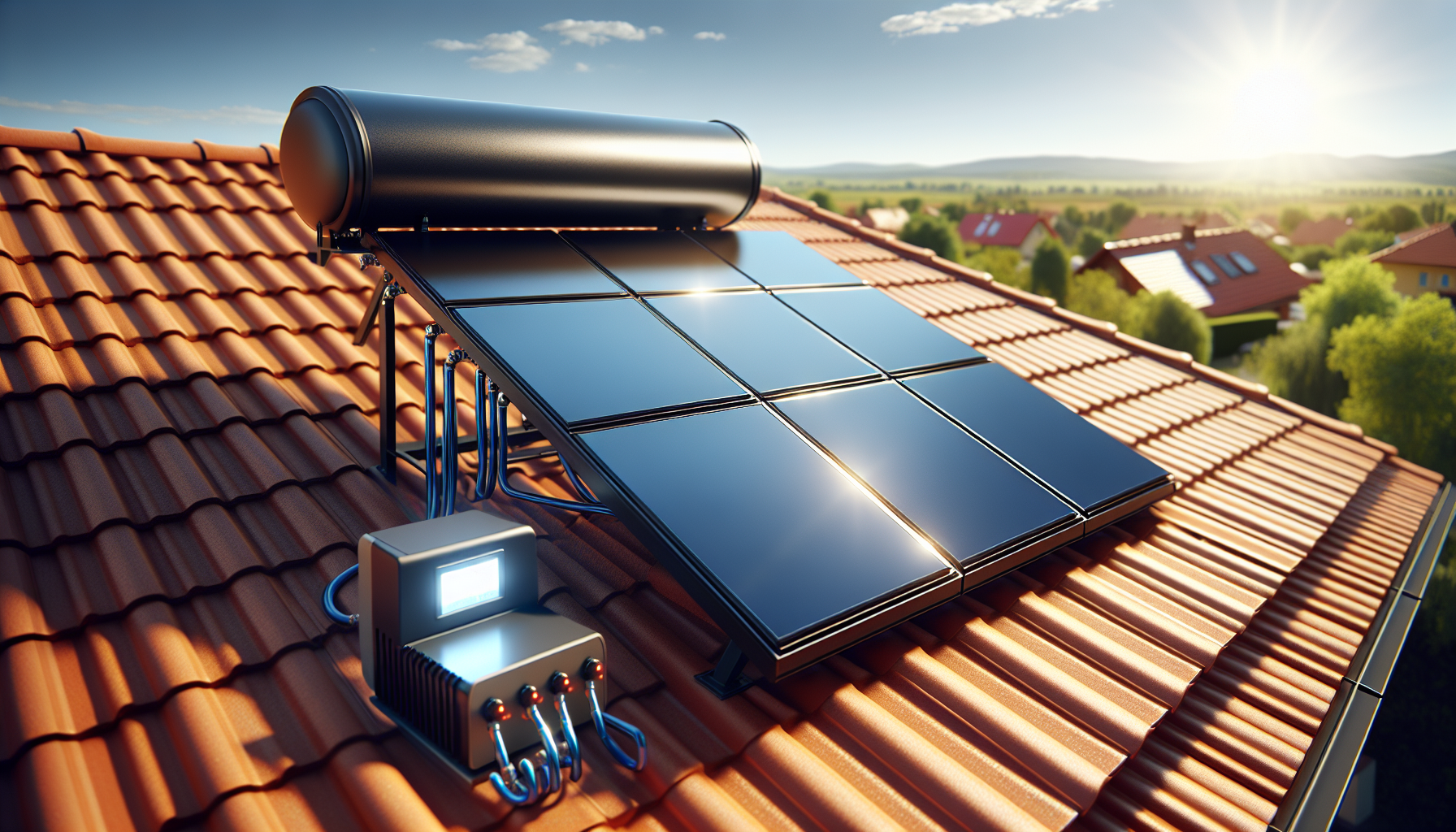
Imagine harnessing the abundant energy from the sun to heat water for all your household needs. That’s precisely what a solar hot water system does. These systems utilize solar collectors or panels to convert sunlight into heat, effectively warming your water.
And the best part? Even if you live in an apartment building or already have solar panels installed, a solar hot water system can be a great addition, providing a practical solution where adding more solar panels may not be feasible. A solar water heater can efficiently supply hot water, making it a perfect complement to your existing solar hot water system.
The Science Behind Solar Hot Water
Curious about how it works? Picture a giant sponge soaking up sunlight instead of water. This is essentially what the solar collectors in a solar hot water system do. They absorb the sun’s energy and transfer it to heat water. The heated water then flows into a storage tank, ready to be used whenever you need it.
The system is incredibly efficient, using a gas booster and at least 60% less energy than conventional gas or electric water heating systems.
Types of Solar Hot Water Systems
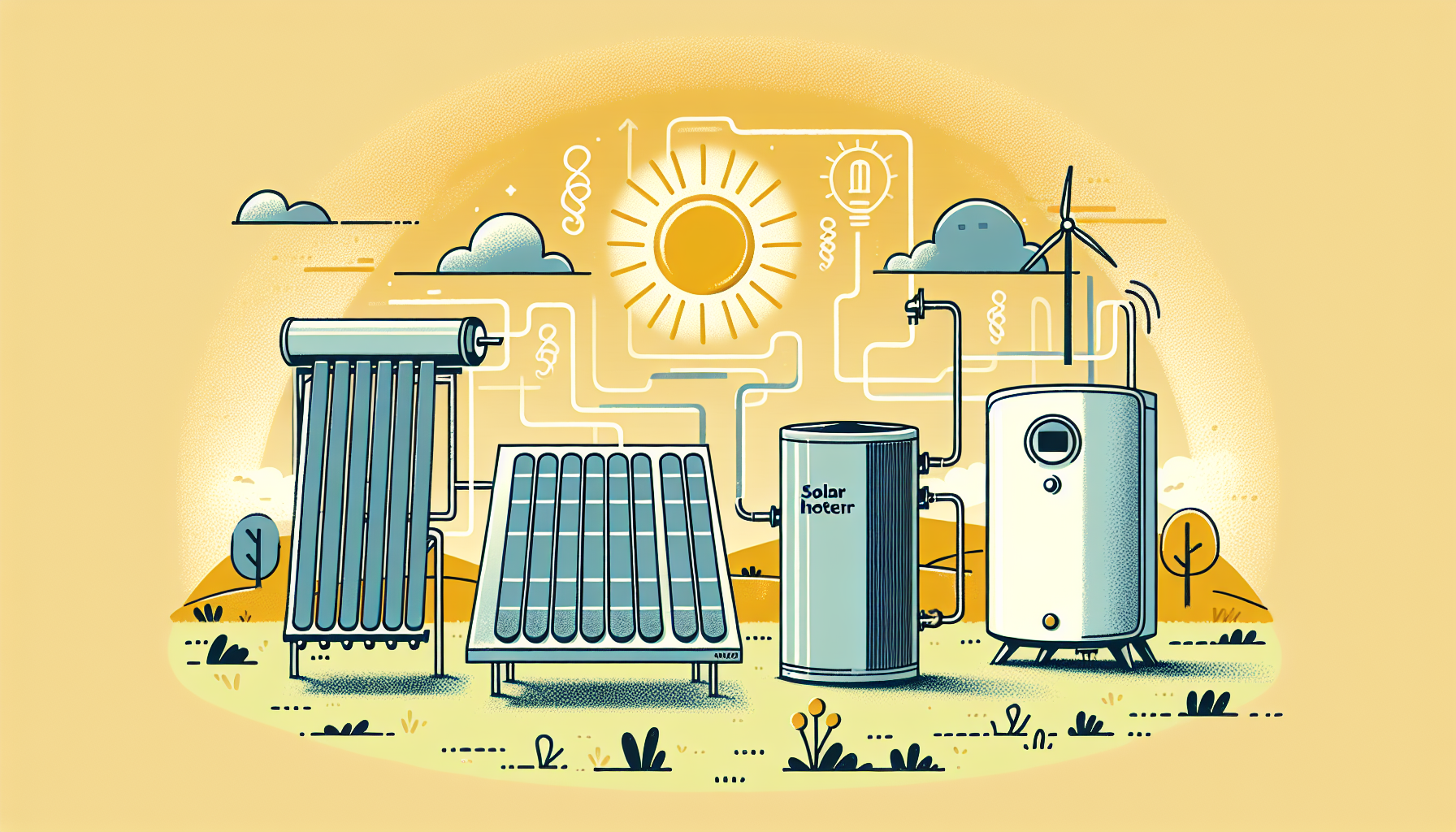
Solar hot water systems, much like cars, vary in shapes and sizes, each boasting unique features and benefits. For instance, collector-based systems absorb the sun’s rays and transfer the heat straight to hot water. On the other hand, heat pump systems increase the water temperature using heat from the air, much like a reverse-cycle air conditioner.
While the latter requires electricity to operate, they are much more energy-efficient compared to a conventional electric water heater.
Financial Incentives and Rebates
You might be wondering, “All this sounds amazing, but isn’t it going to be expensive?” Well, you’ll be pleased to know that financial incentives and rebates are available to help offset the initial cost of installing a solar hot water system. From the hot water rebate that offers a 50% rebate on the purchase price of an approved system, to Small-scale Technology Certificates (STCs) that help reduce the upfront cost, there are plenty of ways to make solar hot water systems more affordable.
Understanding STCs
Let’s explore STCs in more detail. These certificates are a federal incentive aimed at reducing the upfront cost of solar hot water systems for homeowners. STCs are calculated based on 1 megawatt hour of renewable electricity either generated or displaced by an eligible small-scale system.
Claiming STCs is a straightforward process, requiring homeowners to complete and sign the necessary paperwork requested by the Clean Energy Regulator within 12 months of the system’s installation date.
Navigating State Rebates and Incentives
Beyond federal incentives, various state-based rebates and incentives are up for grabs. These can provide additional financial support for homeowners looking to install solar hot water systems. You can easily find these incentives by visiting the federal government’s energy website, selecting your state, and checking the ‘hot water’ section under ‘I am interested in these areas’.
You can also reach out to your state government or check rebate calculators on manufacturers’ and suppliers’ websites. It’s worth checking these out to make the most of your solar hot water system investment.
Energy Costs Cut Down
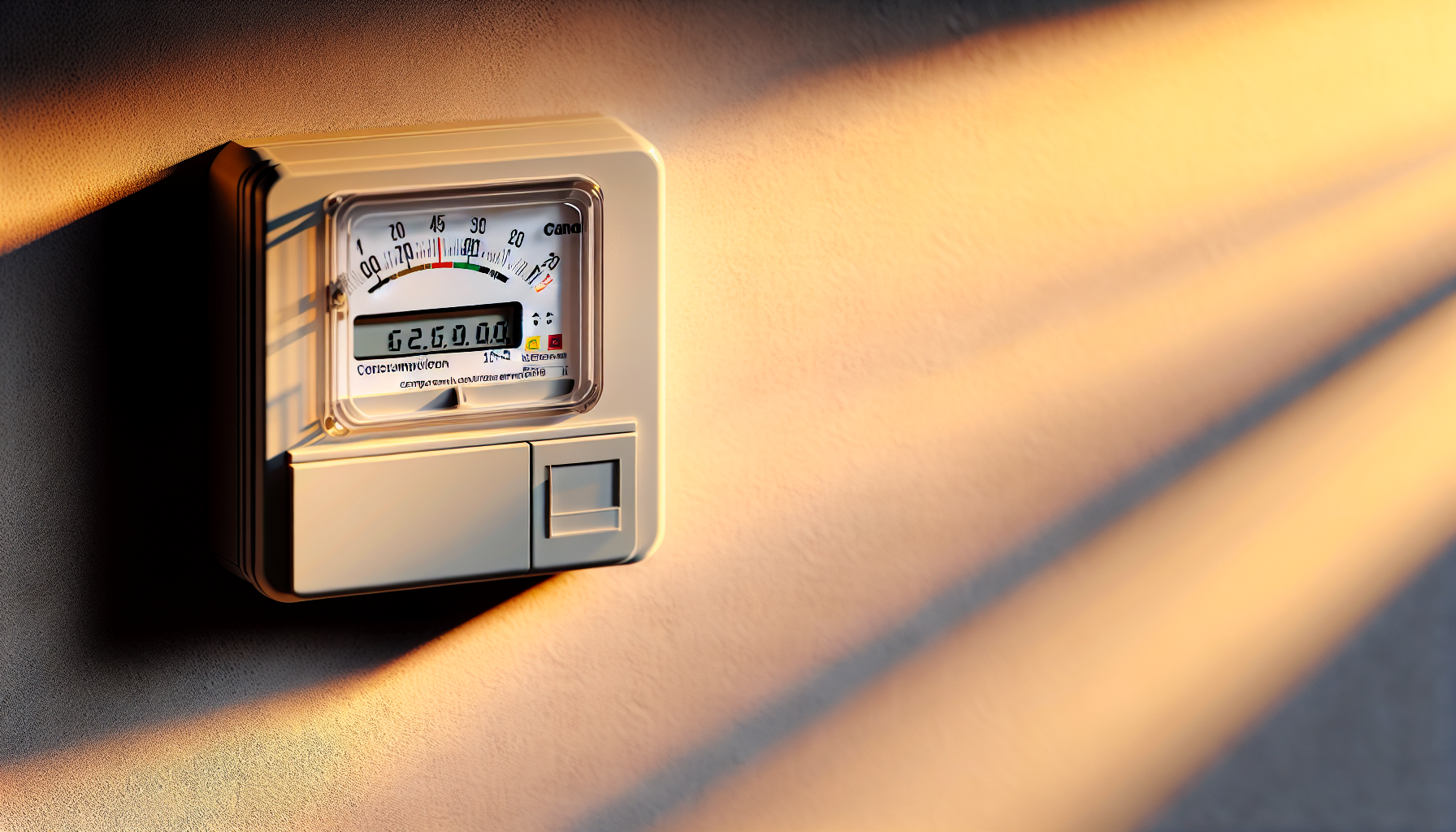
Let’s discuss the long-term benefits now. One of the significant advantages of solar hot water systems is the potential for substantial energy cost savings. In fact, most households experience at least a 50% decrease in their hot water costs after switching to a solar hot water system. This means that the savings typically cover the cost of the upgrade within about five years or less.
Comparing Running Costs
For perspective, the operating expenses of solar hot water systems are considerably less than those of traditional electric or gas systems. The expected annual operational costs for maintaining a solar hot water system are around $150, which is relatively low compared to other hot water systems.
On the other hand, the annual costs for gas systems are around $275 to $325. This is quite a significant difference, don’t you think?
The Impact on Electricity Bills
The reduction on your electricity bills is equally noteworthy. With solar hot water systems, you can enjoy:
-
A significant reduction in electricity bills of up to 65%
-
A reduction in water heating bills by 50%–80%
-
An average household with a solar hot water system can save at least 60% on their water heating bill annually
-
Total home energy costs may reduce by up to 90%
That’s a significant amount of money saved each year!
Boosting Home Value and Eco-Friendliness
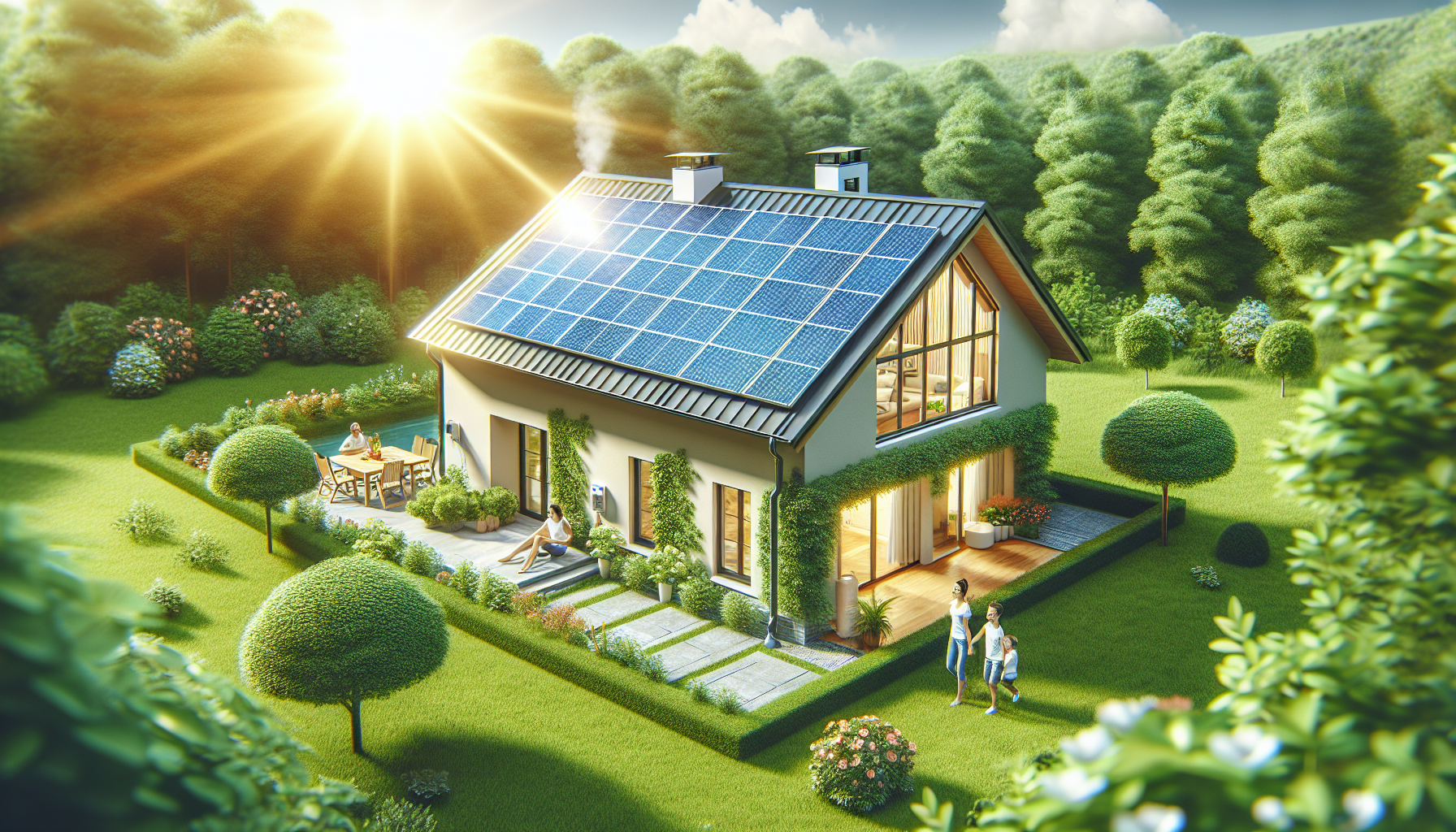
However, the advantages of solar hot water systems extend beyond energy savings. These systems can also boost your home’s value and eco-friendliness.
By switching to a solar hot water system, you’re not only making a smart financial move but also contributing to a cleaner, greener future.
Green Investment
Consider the installation of a solar hot water system as an eco-friendly investment. Not only can it add to your home’s overall appeal and increase its market value by around 4-5%, but it can also make your home more energy-efficient and environmentally friendly.
This makes your home more appealing to potential buyers who value energy efficiency and sustainable living.
Reducing Carbon Footprint
Another considerable advantage of solar hot water systems is the reduction in your carbon footprint. By replacing conventional energy sources with a clean alternative, these systems can significantly reduce carbon emissions. In fact, a solar hot water system can reduce an average household’s carbon emissions by 2.4 to 3 tonnes annually.
That’s the equivalent of taking a car off the road for a year!
Installation Insights: What You Need to Know
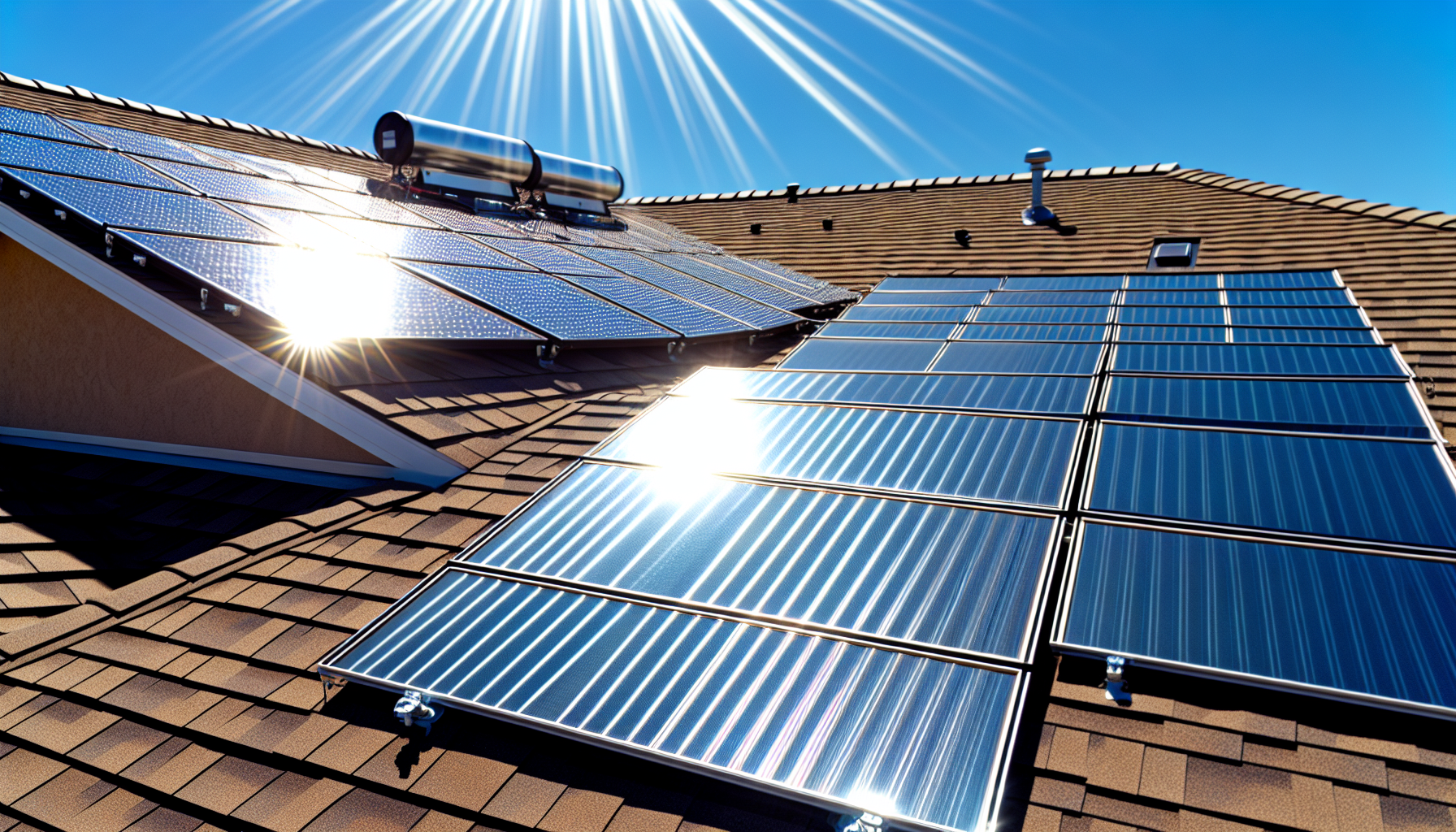
So, you’re convinced about the benefits of a solar hot water system. But before you make the leap, there are a few things you need to know about installation.
You need to locate a part of the roof with abundant sunlight, ideally facing north for optimal sun exposure. You also need to consider the size of the system based on your household’s hot water needs.
Choosing the Right Location
Selecting a suitable location for your solar collectors is vital to ensure maximum sun exposure and efficient system performance. The ideal location is a section of north-facing roof, no more than 45° east or west of true north. This ensures that the collectors receive optimal sunlight throughout the day.
The ideal angle for positioning solar collectors is between 15° and 50° from the horizontal to effectively capture solar radiation.
Sizing Up Your System
Selecting a system of an appropriate size is equally crucial. The size of the solar hot water system required can be influenced by factors such as family size, hot water usage, and capacity requirements. For small households, a system size of less than 200L is efficient. For medium households, a size of 200-300L is recommended. And for large households, a size of 300L or more is suitable.
Maintenance and Longevity
Once your solar hot water system is installed, ensuring its longevity becomes a priority. Regular maintenance and attention to the durability of your system can ensure its longevity and continued performance. This includes following the recommended maintenance schedule, which involves an inspection every five years.
Regular Check-ups
Conducting regular check-ups is vital to maintain the performance of your solar hot water system. A standard check-up includes:
-
Comprehensive service, maintenance, and support over a 5-year period
-
Regular inspection and testing of pumps and controls
-
Visual inspection for leaks
-
Checking the water quality
Durability Over Time
Typically, solar hot water systems are durable, boasting an average lifespan of 10-20 years. Factors that can contribute to the longevity of your system include:
-
Water quality
-
Usage habits
-
Quality of installation
-
Regular maintenance
With proper care and maintenance, your gas hot water system can provide you with a reliable source of hot water, easily accessible through your hot water tap, for years to come.
Integrating with Solar PV Systems
If you already have a solar PV system installed, integrating a solar hot water system can yield extra benefits. Excess power generated by your solar PV system can be utilized by your solar hot water system, further increasing energy efficiency and cost savings.
Excess Power Utilization
Your solar hot water system can utilize excess power from your solar PV system to heat water efficiently and store it for future use. Devices or mechanisms like solar diverters, timers, and relays can facilitate this transfer of excess power, helping you make the most of the power your PV system generates.
Combined Benefits
Combining solar hot water and solar PV systems offers a perfect blend of advantages. Here are some benefits:
-
Faster payback times
-
Reduced ongoing energy expenses
-
Maximizing savings from daily hot water usage
-
Converting excess solar energy into heating water
Plus, incorporating both a solar hot water system and a solar PV system can significantly increase the value of your home.
Summary
In conclusion, solar hot water systems are a game-changer for homeowners. They offer a sustainable and cost-effective solution for hot water needs, reduce energy costs, increase home value, and contribute to a greener future. Whether you’re installing a new system or integrating with an existing solar PV system, the benefits of solar hot water are clear. So why wait? Make the switch to solar hot water today and start enjoying the benefits of renewable energy.
Frequently Asked Questions
What are the benefits of solar hot water?
Switching to a solar hot water system can save up to three tonnes of greenhouse gas emissions annually and significantly reduce energy bills. It's a great way to be environmentally friendly and cut down on costs.
What is one disadvantage of solar water heater?
Solar water heaters can have a high initial installation cost, which may be a barrier for some homeowners. The expense of purchasing and installing solar panels, storage tanks, and associated equipment can be daunting. However, the long-term energy cost reduction can still be significant.
How much does solar hot water save you?
A solar hot water system can save you up to 75% on water heating costs, providing significant savings compared to electric or gas heating options. In fact, most households switching to solar hot water can reduce their hot water costs by at least 50%.
How does a solar hot water system work?
A solar hot water system works by capturing sunlight to heat water using solar collectors, which then flows into a storage tank for use. It's an efficient and eco-friendly way to provide hot water for your household needs.
How do I apply for financial incentives and rebates?
You can apply for financial incentives and rebates through the federal government's energy website or by contacting your state government. Additionally, check rebate calculators on manufacturers' and suppliers' websites. Good luck with your applications!








